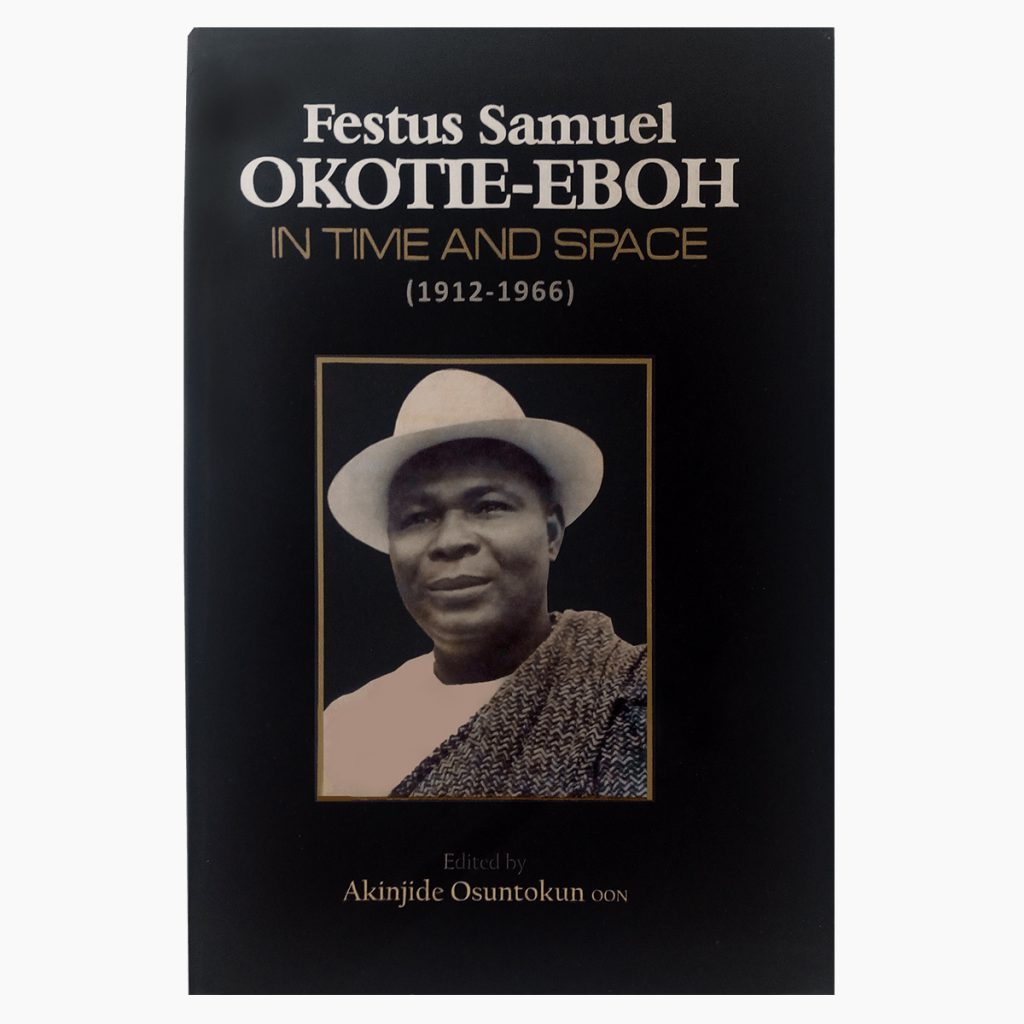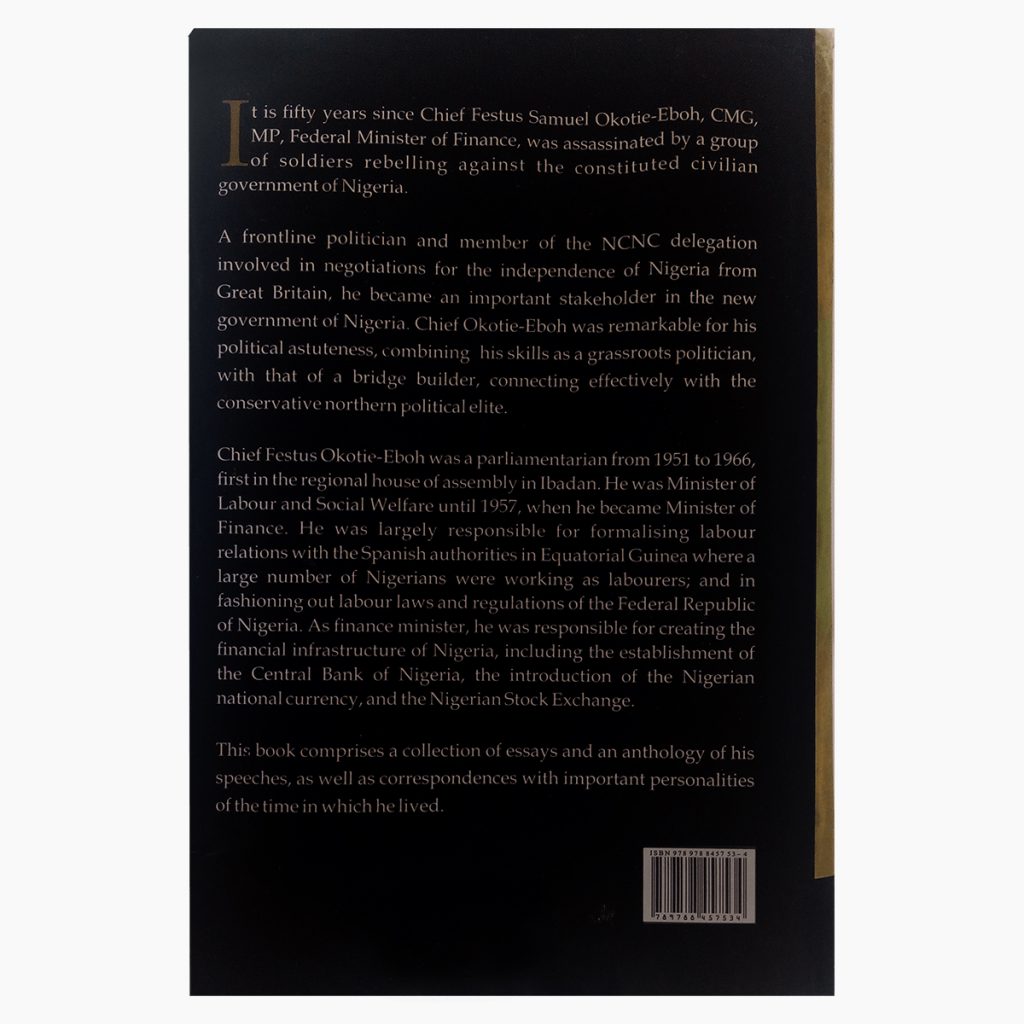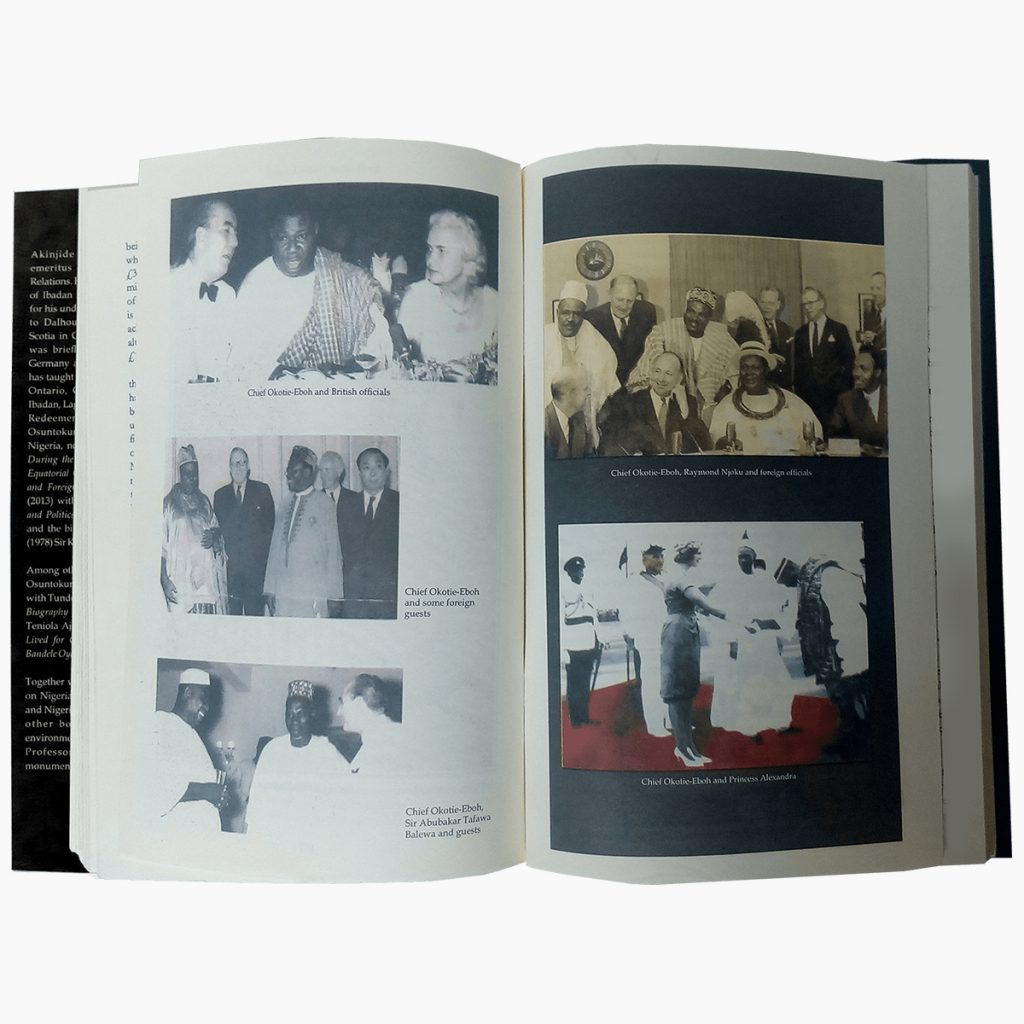Description
FOREWORD
The assassination of Chief Festus Samuel Okotie-Eboh, CMG, M.P. in Nigeria’s first military coup d’etat on 15th January, 1966, robbed the nation of a genuine and colourful patriot. As the country first finance Minister, his work in creating a stable foundation for the national economy has not been surpassed. His ability to serve fro nearly a decade under the leadership of Sir Abubakar Tafawa balewa, even though he was not a member of the Prime Minister’s political party, set an example of harmony in public service that could be emulated in the politics of Nigeria today. In carrying out his assignment as the manager of the national economy, he sought to be fair to all and sundry and to implement government’s policies on behalf of the masses with prudence and a high sense of discipline.
He supervised the establishment of the Central bank of Nigeria, the inauguration of the first National Currency, the establishment of the Nigerian Stock Exchange, and the creation of the first Nigerian Investment and Development Bank in the 1950’s and 1960’s.
At that time, all these decisions were regarded as far-reaching innovations. Today, they are taken for granted. For this reason, Chief Okotie-Eboh’s real achievements have been overlooked. It is a function of history that such omissions in the record of a nation’s life should be periodically revisited and restored to their rightful place in national memory.
Monuments and ceremonies of praise are ephemeral and rarely give true honour to those who deserve it. However, when truth is placed on record, the real worth of a person’s service to humanity can be assessed. this is the greatest memorial that any public servant can hope for. Chief Okotie-Eboh’s legacy has continued to inspire many Nigerians who wish to follow in his footsteps, either as a successful businessman or as a seasoned financial administrator. However, many of those who have enjoyed the benefits of his pioneering work may not even be aware of the strength of his legacy because they may have been too young when he was active in politics and economic management to be aware of his sterling qualities
Since his murder in 1966, efforts have been made to justify the dastardly act by discrediting his true achievements. This publication will perform a great service for Nigeria’s political and economic history if it helps to reverse this trend and bring Chief Okotie-Eboh’s real achievement to light.
MALLAM ADAMU CIROMA
Minister of Finance
Ahmadu Bello Way,
Central District, Abuja,
9th January 2002.




Reviews
There are no reviews yet.